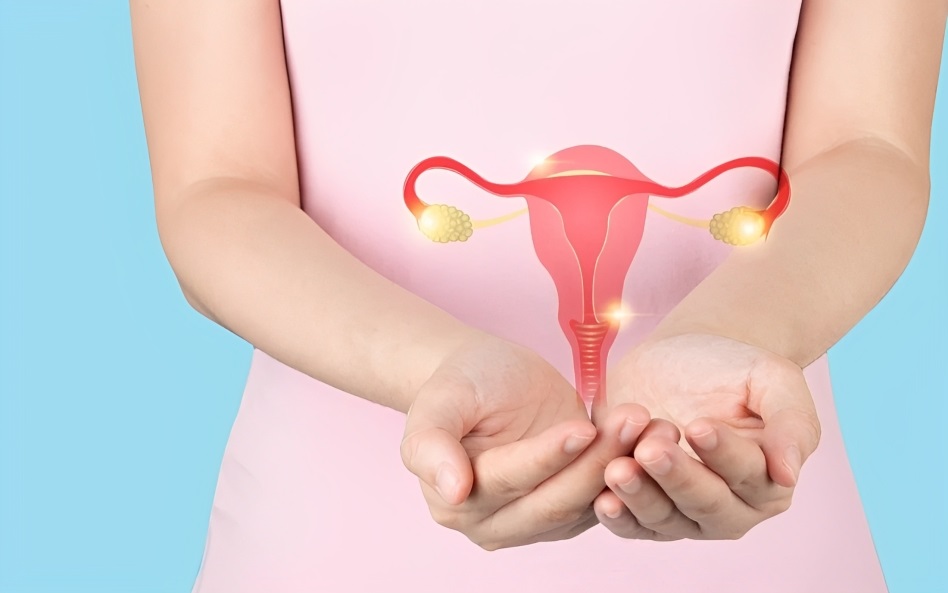Non-Surgical Polycystic Ovary Treatment



A typical hormonal imbalance in women from puberty until childbearing age causes concerns with the ovaries that prevent the release or development of the egg and result in an increase in testosterone (the male hormone), which results in symptoms that affect both physical and reproductive health.
Women who suffer from polycystic ovarian disease, have physical and psychological symptoms. The struggle leads the patient to look for a treatment that can eliminate or lessen their symptoms and prevent them from experiencing the risky side effects of polycystic ovaries.
Tadawi Medical Center offers non-surgical PCOS treatment under the supervision of medical professionals with extensive experience in treating gynaecological conditions.
Although some cases would require surgical intervention that can also be done at Tadawi Medical Center, starting the treatment in a conservative manner can lead to great results.
How do gynaecologists check for PCOS?
- General examination
Checking for masses, deformities, and the presence of signs of hyperandrogenism such as acne or hirsutism (increased hair growth in abnormal areas)
- Laboratory blood tests
An increase in luteinizing hormones, testosterone, and estrogen are a few examples of abnormalities in the levels of some of the hormones that contribute to PCOS that are found during this type of examination.
- Ultrasound
One of the most significant tests that reveal the ovaries’ health and measure the uterus’s thickness is through a vaginal device that displays changes in the ovaries. Women with polycystic ovaries are typically twice as large as those healthy women.
- Laparoscopy
As a final step if non-surgical treatment does not work a laparoscopy is recommended.
A luminous camera is inserted into the abdomen under general anaesthesia to photograph the interior and detect the presence of any cysts on the ovaries, infections, or tumours. During this procedure removal or extraction of cysts is also viable if deemed necessary.
What is the cause of polycystic ovaries?
Functional, genetic, and pathological causes all contribute to polycystic ovaries, and they include:
1- Genetic reasons
The incidence of polycystic ovarian syndrome increases among girls whose mothers suffer from the same disease without a clear medical reason for the condition.
2- Functional reasons
Problems with the hormones estrogen and progesterone cause follicular cysts to grow or yellow cysts to develop with liquid inside them; these cysts typically disappear on their own.
3- Pathological reasons
One of the causes of ovarian cysts and abnormal tissue adhesion and growth is endometriosis, an infection with tumors and cystic glands that affects the surface of the ovary.
What are the disadvantages of PCOS?
- Ovarian torsion may occur, it is when the ovary twists around the ligaments that hold it in place leading to a decline in ovarian blood flow.
- Infertility caused by endometrial cancer.
- Pregnancy-related diabetes or high blood pressure.
- Miscarriages that recur or premature births.
- Steatohepatitis without alcohol.
- High harmful cholesterol levels.
- Cardiovascular disease prevalence.
- Mood disorders and eating problems.
How long does polycystic ovary treatment last?
The length of polycystic ovary treatment varies depending on the severity of the case, its causes, the type of treatment, and the frequency of periodic follow-up visits to assess the patient. It can last between two months and about a year.
What is the correct treatment for PCOS?
- Pills for contraception control the menstrual cycle.
- Regulating hormones and using medication to treat acne.
- Exercise regularly and eat healthfully.
- Using a laser to remove surplus, unwanted hair.
- Treatment for persistent diabetes and excessive weight gain.
Can PCOS be cured?
Unfortunately, there is no cure for polycystic ovary syndrome, but its painful and uncomfortable symptoms can be reduced by using medication and changes to the patient’s diet.
These solutions have proven highly effective in controlling PCOS and reducing symptoms.
Are polycystic ovaries associated with infertility?
Although ovarian cysts do not directly cause infertility, they affect fertility and prevent women from ovulating normally, which impacts childbearing. Women must alter their lifestyles and take medications that treat the hormones responsible for fertilisation to cope with the challenges of childbearing.
What are the first signs of PCOS treatment?
- Disturbing is the uninterrupted regularity of the menstrual cycle.
- Losing extra pounds and regaining one’s ideal weight.
- The cessation of unsettling disease-related symptoms.
- The body’s reaction to fertility treatments and a woman’s capacity to get pregnant.
- Mental and emotional stability, as well as the cessation of insomnia.
When does PCOS need surgery?
PCOS treatment is recommended by doctors when other forms of PCOS treatment are ineffective and the side effects become risky for the patient and increase her risk of long-term diseases like diabetes, high blood pressure, and high cholesterol. It is carried out using a scope to remove the ovarian cyst through a laparoscopy.
BOOK NOW